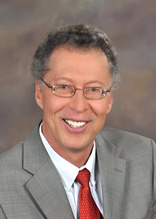Toto, it aint a laissez faire environment any more
The federal Comprehensive Environmental Response, Compensation and Liability Act (CERCLA), also known as “Superfund,” was established to address abandoned hazardous waste sites.
Among other things, and in addition to its Superfund notoriety, CERCLA created a liability scheme to determine who could be held at law accountable for the release of hazardous substances. The astute reader should not just think of well publicized Superfund sites as the only goal of the law. The overall purpose of CERCLA is that of a pollution enforcement statute.
Under CERCLA, individuals, corporations, and governments (yes governments) may be liable for the cost of fixing abandoned hazardous waste sites. Liability is based on property ownership, or by virtue of activity of a party that had an effect on a particular site. For property sites from which there is a chemical release or threatened release of hazardous substances, the categories of “potentially responsible parties” include:
• Current owner or operator of the property
• Past owner or operator of the property at the time of disposal of hazardous substances
• Current or past agent who arranged for hazardous substances to be disposed of or transported to the site for disposal
• Current or past agent who transported hazardous substances to the site
Consider however that the agricultural production world, mostly farming, holds legal exemptions from certain federal environmental laws. This is because of the agricultural sector’s political clout as well as the acknowledged necessity of food production in the U. S. Agriculture is exempt from compliance with federal statutes such as the Clean Water Act, Clean Air Act, and CERCLA. While states have some authority to step in and regulate these areas of environmental oversight, states do not, leaving a large sector of the economy excluded from much of the liability inquiry discussed in this piece.
An example of an exception granted to agricultural is the act of waste sludge applied to farm fields. Using sludge (in bureaucratic parlance “biosolids”) on cropland is a nutrient rich use of so-called natural fertilizers. If the sludge is applied following certain EPA rules the activity is allowed under CERCLA. A problem in circular logic remains unresolved from this practice. Past pollution caused by sludge is a legal issue in no-man’s-land because CERCLA is the principal federal code for holding polluters liable for environmental contamination. And questions remain regarding the sludge-spreading effects on groundwater and indirectly on livestock heath and production.
What is CERCLA liability? Under CERLA, liability may be applied retroactively against past or present owners that release or threaten the release of hazardous substances. This includes the owners and former owners of buildings, equipment and land. Courts have found liability in situations where there was little or no activity on the part of the current owner/operator concerning a hazardous substance. And the recent acquisition of a property could result in the assumption of liability for the previous hazardous contamination of the property whether or not the innocent buyer looked into the situation.
Common sense applies to property ownership in the new world of environmental stewardship. Modern property management how-to manuals include a detailed litany of things recommended in this new world order. But let us start with some basic rules. Research, due diligence, and simple questioning of those who should know about the property is the first step by those in ownership or those about to take ownership of property. As boring as it is, creation of a policy for detecting hazardous releases as well as a policy dealing with the release when it occurs is the best remedy. These protocols also provide a defense should a claim or problem occur later in the life of the property.





